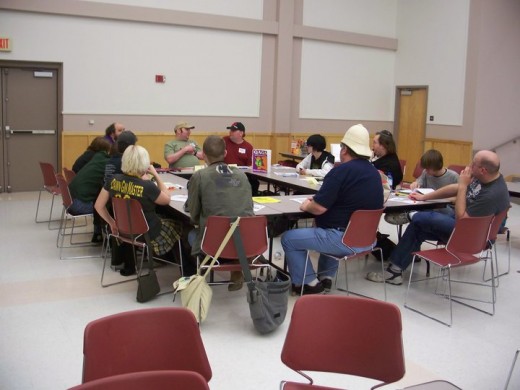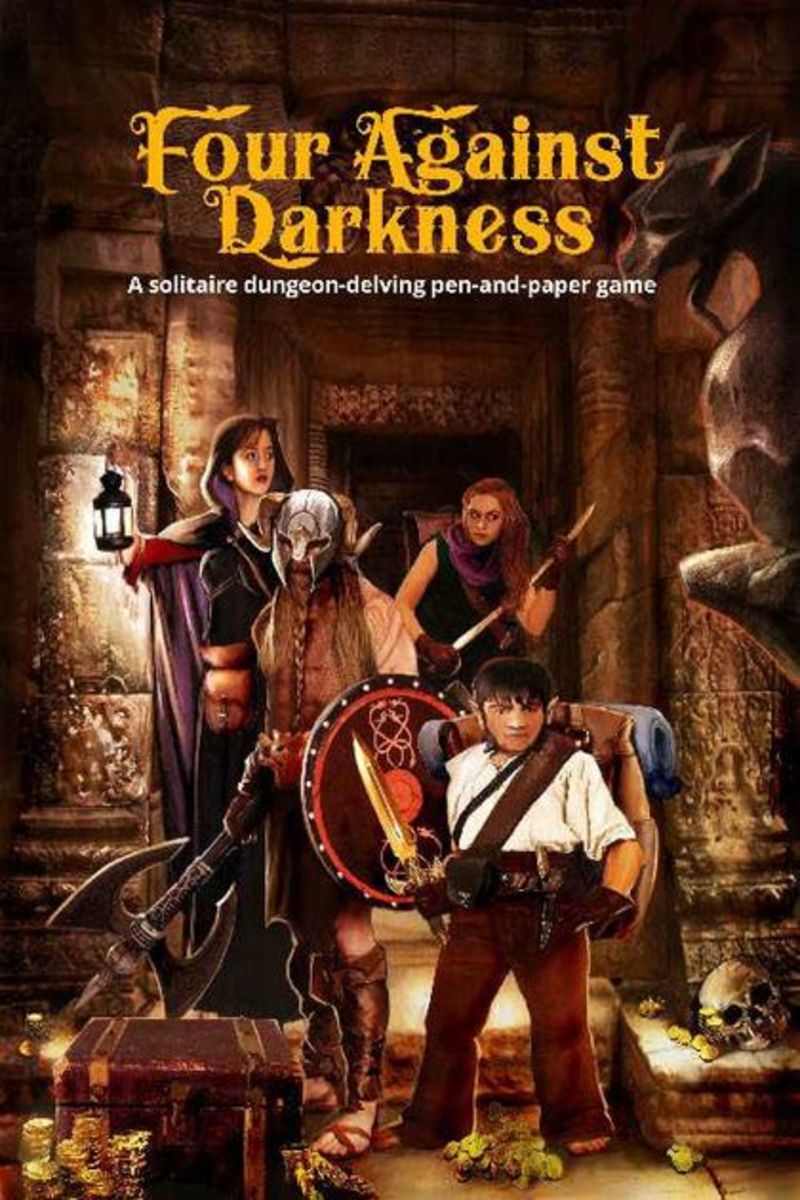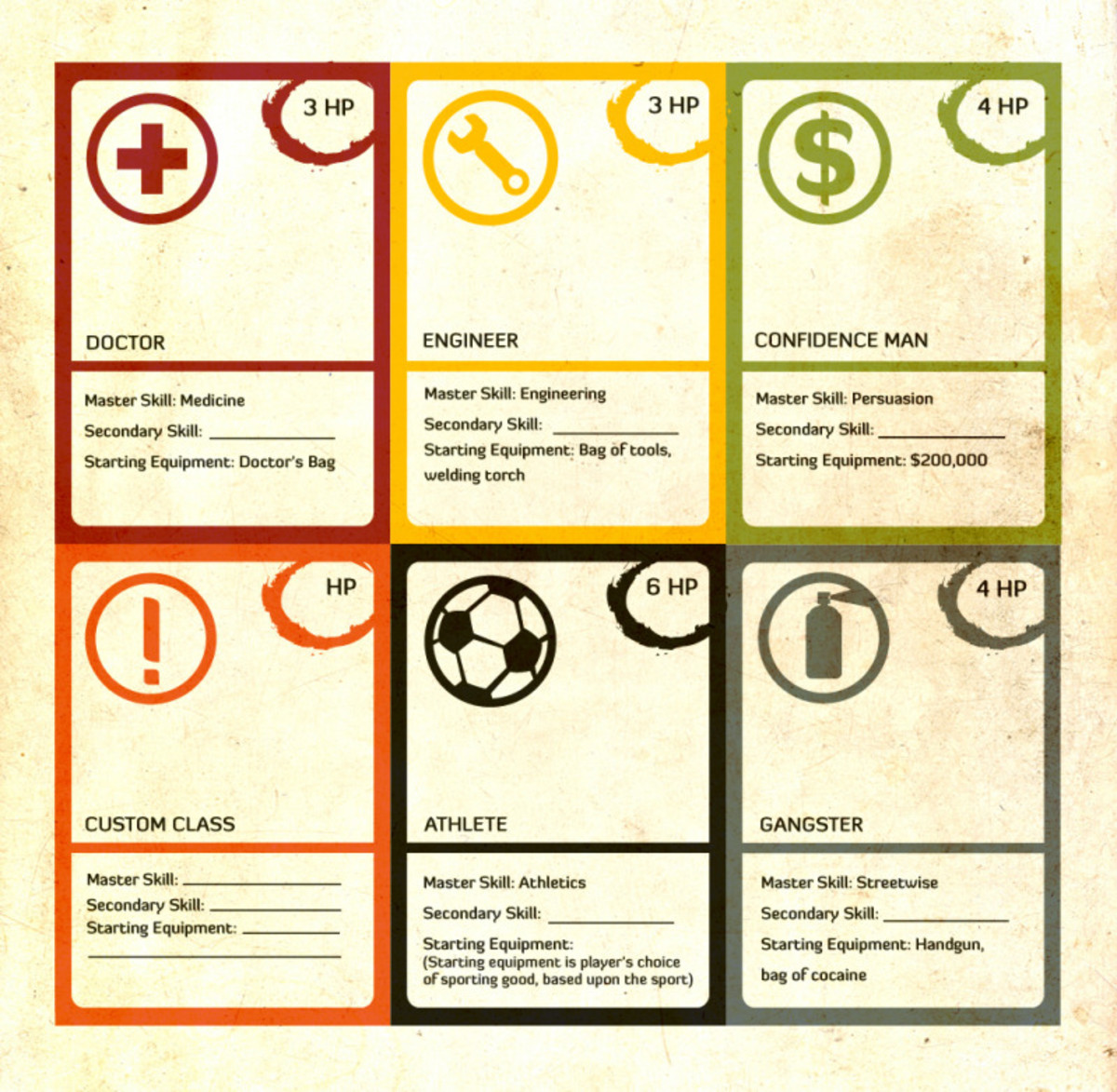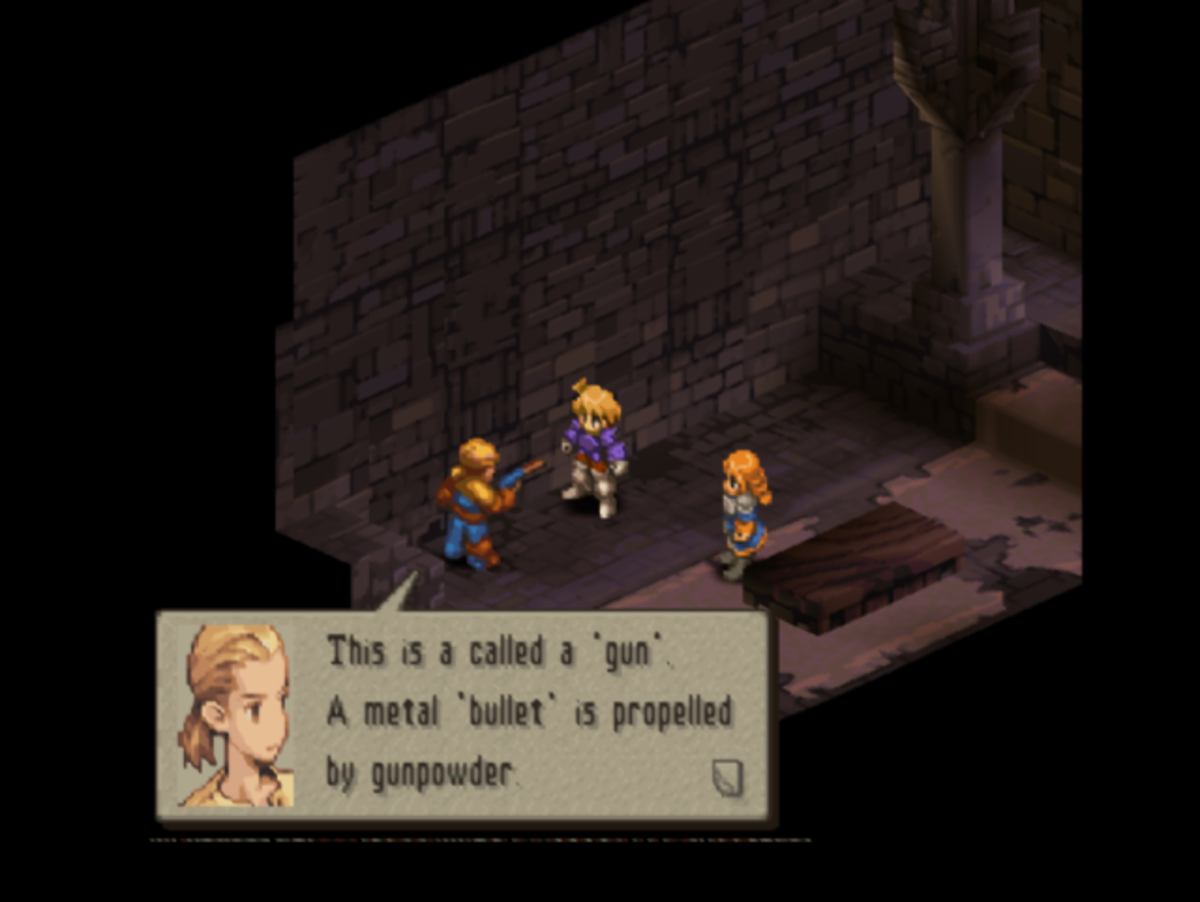An Introduction to Tabletop Role-Playing

Role-playing games (RPGs) have been around since the 1970s, and at this point most people are familiar with them even if they don't know precisely how they're played. When most people think of tabletop role-playing, they think of Dungeons & Dragons, the oldest and most popular RPG on the market, and imagine a bunch of geeks sitting around a table in viking helmets rolling funny dice, eating Cheetos, and quoting Monty Python. While the hobby's image as an activity engaged in by socially awkward misfits can be disturbingly accurate, RPGs can also be a fun diversion for normal, well-adjusted people.
What Is Role-Playing
In the introduction to QAGS Second Edition, my co-author Leighton Connor and I defined role-playing like this:
[Role-playing] is like make-believe except that there are more rules. When you were a kid Mr. Pookums [your Teddy bear] would do what you said. Now that you're a grown-up, playing with real live people, you need a system to resolve disagreements. The QAGS system uses dice and candy to keep things running smoothly. Another difference from make-believe is that you're too old to go running around the block waving a plastic sword. Now you need to sit around a table. This may sound boring at first, but trust us--while you're sitting at this table you and your pals will pretend to be other people and have thrilling adventures.
In essence, role-playing is a combination of three activities: collaborative storytelling, acting, and playing a game. Different gaming groups put different levels of emphasis on each element, but all three are usually present to some degree.
Collaborative Storytelling
Every RPG session tells a story, even if it's just about a bunch of elves and wizards wandering around in a dungeon killing monsters and taking their stuff. Most players take on the role of a single protagonist in the story, usually referred to as a Player Character (PC) or simply "character." The character is the player's alter-ego within the game world, and is defined by a combination of game rules and story elements such as background, personality, physical appearance, and goals.
One player takes on the role of Game Master (GM) and is responsible for directing the story. It's her job to create and describe the world in which the game takes place, move the story along, and generally make sure that everyone has a good time. Some GMs spend hours planning out their games while others just make things up as they go along.
Some gaming groups prefer simple, self-contained, and mission-oriented stories; for example, a tale where the protagonists kill a dragon or stop a bank robbery. Other groups tell elaborate, multi-layered stories that continue on from one game session to the next. These types of ongoing stories ("campaigns" in gamer jargon) allow the characters to change and grow over time and give the players a chance to explore different themes, experiment with different play styles, and develop a richer, more vibrant game setting.
Acting
As the term "role-playing game" implies, the players in an RPG each take on one or more roles. During the game, the player is responsible for deciding what actions his character takes, how he reacts to situations within the story, and even what he says to other characters.The Game Master takes on the roles of all the other characters in the story, from the the characters' arch-nemesis to the homeless guy that hangs out in the alley behind the crime cave.
The degree to which players act out the story varies widely from group to group and player to player. Some people refer to their character in the third person and merely describe the character's actions and dialogue. Others actually take on the role of the character, describing actions in first person, speaking as rather than for the character (often in a different voice), and even acting out mannerisms and body language.
Playing A Game
The final element of RPGs is the game element, which is where those funny dice come into play. For more story-oriented games like QAGS, the rules system is purely a tool for resolving conflicts and determining what happens when there are several equally logical outcomes. Other RPGs focus mainly on the game element and have more in common with a traditional board or miniatures game. These sorts of games generally have more complex rules that cover everything from battle tactics to resource management.
The Fourth Element
In addition to storytelling, acting, and playing a game, there is a fourth aspect of role-playing that is rarely mentioned in the rulebooks: social interaction and friendship. Regardless of whether a game resembles campfire stories, improvisational theater, or chess, the common thread through all tabletop RPGs is that they are a social activity. A game session is a chance to catch up with old friends, meet new ones, and generally enjoy the company of other people. Sometimes groups have so much fun socializing, they forget to play the game--and there's absolutely nothing wrong with that.
© 2010 Steve Johnson









